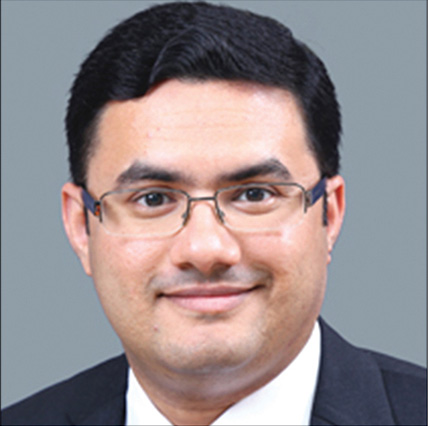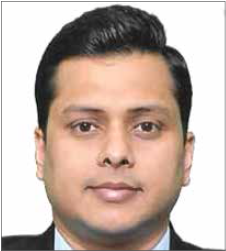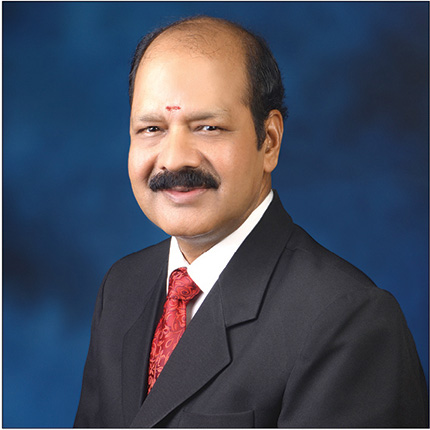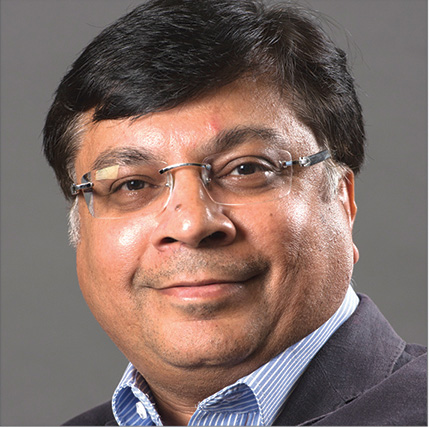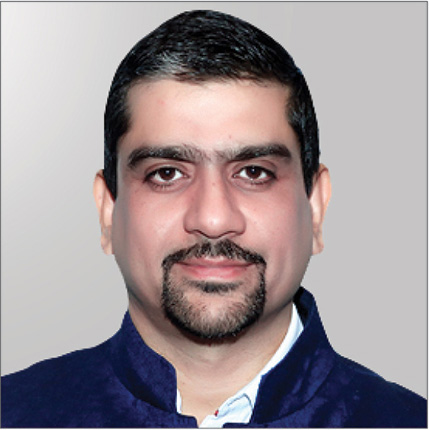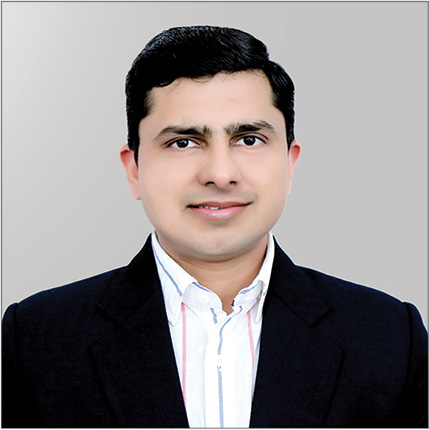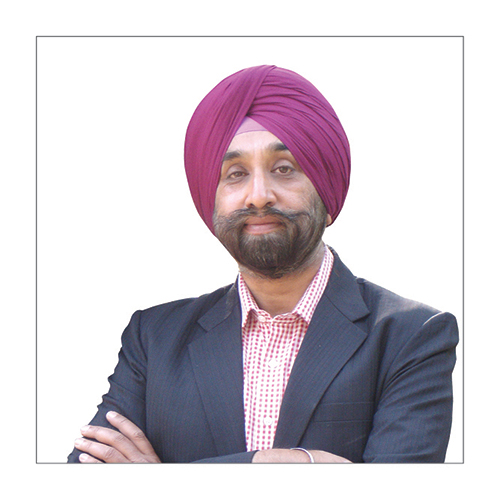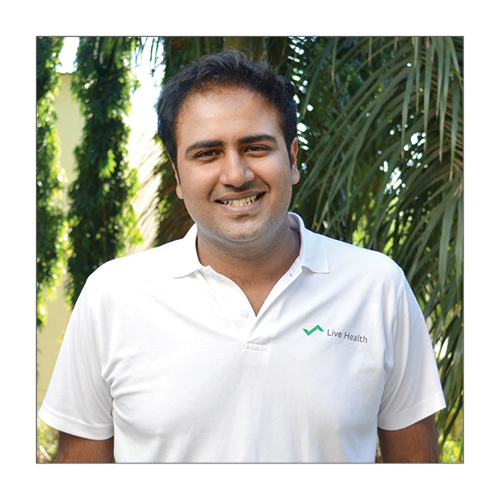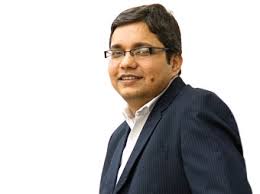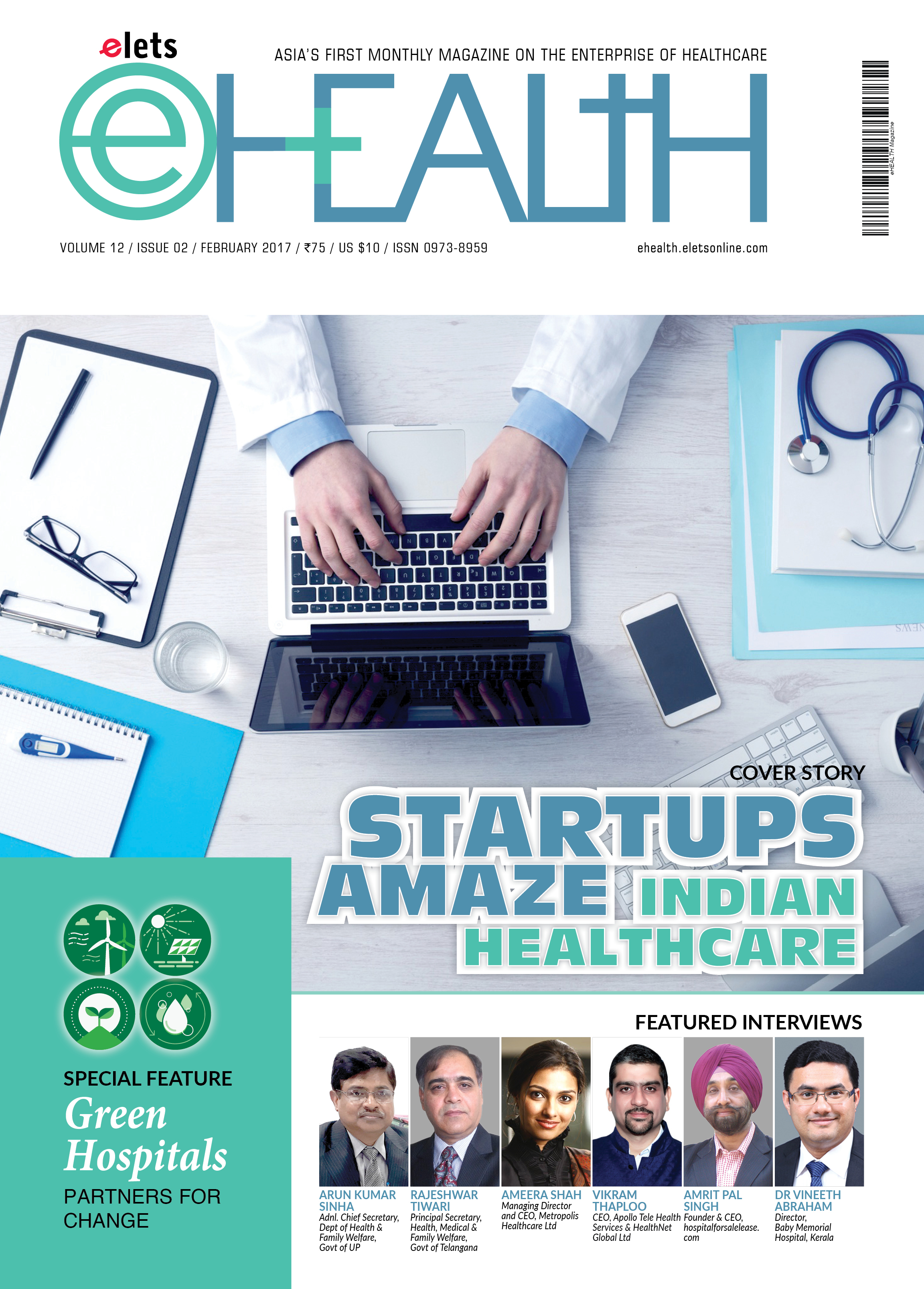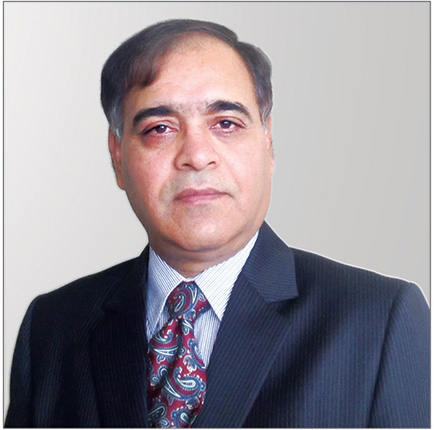

Principal Secretary, Health, Medical & Family Welfare
With more focus on improved healthcare services for mother and children, the Government of Telangana is revamping the States healthcare sector, says Rajeshwar Tiwari, Principal Secretary, Health, Medical & Family Welfare, in an interview with Sudheer Goutham and Harshal Desai of Elets News Network (ENN).
What kind of steps government is taking to bring more effective and transparent healthcare systems for the benefi t of the people in Telangana? How do you envision the idea of a Healthy Hyderabad?

The Government of Telangana is making all efforts to make healthcare accessible to every citizen of the State. The budgetary allocation for health sector has increased considerably after formation of the State. For the year 2016 budget allocation is `5966 crores. Apart from this around `1000 crore is allocated under the National Health Mission. This shows the governments commitment towards providing better health services to the people.
The Government of Telangana is focussing more on the maternal and child health. The institutional deliveries in Telangana stand at 96% and special focus is now on increasing the deliveries being conducted in government health facilities. All the government hospitals are being strengthened to provide effective and transparent healthcare to the poor.
Regarding the health care delivery in Hyderabad, since Hyderabad has an estimated population of 7.7 million with population density of 18,480 people per square kilometer (47,000/ sq mi) with 1,466 slums (notified and unnotified) having a population of 22,87,014, it poses a different challenge to the state to provide health services to the poor.

As per norms there should be one Urban Primary Health Centre on every 50,000 citizens. At present the city has 112 functioning UPHCs. The gap is being filled by establishing more UPHCs under National Urban Health Mission (NUHM). The proposed UPHCs are being established as the e-UPHCs.
What kind of functions the UPHCs linked to?
These UPHCs will function from 8.00 am to 8.00 am and will be equipped with ultrasound machines for screening pregnant women. All the existing UPHCs are being renovated. Mahila Arogya Samithies are formed with the assistance of Mission for Elimination of Poverty in Municipal Areas (MEPMA). Each UPHC will be provided an untied grant of `1,00,000 per month. All the ANMs will be provided with Tablet PCs for tracking of pregnant women and children through tab based app called ANMOL.
However accessing these health facilities by slum and vulnerable population is minimal as health seeking behaviour is poor. Further, 1466 notified and identified slums are scattered across both Hyderabad district (city) and Greater Hyderabad Municipal Corporation (GHMC) parts of other districts, i.e., Ranga Reddy, Medak and Medchal. The health facilities were neither built based on vulnerable population nor were slums developed around the Health facilities for better access to the health care.
Hence, to address the health issues of the vulnerable sections of the community and to take on a proactive health care approach, the urban Mobile Clinics have been planned to provide health care delivery services at the door steps in urban slum areas.
What about the Urban Health and Nutrition Days?
Outreach through Urban Health and Nutrition Days (UHND) and Special Outreach Camps meant to address health needs of this vulnerable population. Outreach Sessions will be organised at locations such as community structures, primary schools, anganwadi centres or any place that is accessible to the vulnerable population, in coordination with ASHA and MAS members through the teams of mobile health units in coordination with respective UPHCs.
The mobile health units/UPHCs will identify the areas to visit and park vehicles very near to these slum population for better access to the health care services. They will also make tie up with local UPHC for referral and tracking of the patients and pregnant women and children for immunization. Special outreach sessions with specialist doctors can be clubbed with these mobile clinics for better outcomes. Drugs, Lab kits and other equipment will be procured separately for mobile health units.
Please elaborate the concept of e-healthcare centres which have been launched by the state government. How these centres are going to boost the healthcare sector?
The government has recently launched e Health Centres at Rasoolpura in Hyderabad under Public Private Partnership (PPP). e-UPHC will have ambiance of corporate clinics that could change the perception about government healthcare institutions. More e-UPHCs will be established in Hyderabad. In these e-UPHCs all necessary diagnostic tests are done and will be available on an MIS system.
How significantly the government is working to improve the facilities at the primary healthcare centres in the rural areas? Please elaborate.
Telangana currently has 683 Primary Health Centres (PHC); of these around 350 work 24*7. The main focus of these PHCs is to provide maternal and child health services, disease control services and outreach activities. The government is taking elaborate efforts to improve the functioning of these PHCs. All PHCs are now being painted to give them a better look. With the formation of smaller districts, the district collectors are able to visit these PHCs physically. Efforts are underway to standardise the labour rooms available in these PHCs.
The state is also planning to set up super speciality hospitals in and around Hyderabad. Will you please brief us on this?
The government plans to ease the workload on hospitals like Osmania, Gandhi etc., by establishing four super speciality hospitals around Hyderabad. These hospitals will have 500 beds for multi specialties and another 200 beds exclusively for Mother and Child care. These hospitals will come up in the Victoria Memorial Home, L.B. Nagar, Mylardevpally and Rajendranagar and near Pet Basheerabad Police Station and Miyapur Bus Terminal.
Research and development institutions play a crucial role in boosting the healthcare system. Is the state government planning to invest in these areas?
The R&D is generally done in the National level institutions like ICMR, NIN etc. However, the state Institute of Health and Family Welfare do undertake some research studies. This year about 5 research studies are planned to be conducted.
How the state government is willing to support start ups in the healthcare domain? Any specific area where the government wants start up to focus?
The government will support the start up in health care. It mainly wants to focus in the areas of mother and child health care.
Be a part of Elets Collaborative Initiatives. Join Us for Upcoming Events and explore business opportunities. Like us on Facebook , connect with us on LinkedIn and follow us on Twitter , Instagram.


